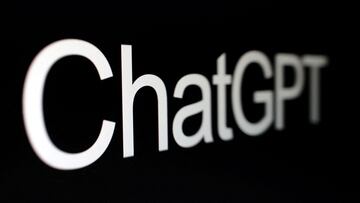Hollywood writers call Chat GPT “plagiarism machine”
Many in the industry are looking to use AI to write screenplays in the midst of writers’ strike.

Hollywood is considering using artificial intelligence to generate movie scripts.
Major studios want ChatGPT to generate movie scripts, a move opposed by the screenwriters’ union.
The idea of integrating AI into the workflow comes at a complicated time, as the film and television screenwriters union have begun an indefinite strike.
Will the industry future include AI-generated scripts?
A report from Above the Line says that for weeks, studios and streaming companies have been exploring the possibility of using Artificial Intelligence, and specifically ChatGPT, to write scripts based on books and works in the public domain.
Additionally, there have been several industry sources who have revealed to the media that almost all studios are considering using AI to write scripts.
If approved, Hollywood would use applications such as ChatGPT as an emergency measure to reduce the impact of the strike, with up to 80 percent of workers being replaced by the technology. The remaining 20 percent of writers would then rewrite the script to speed up the process.
The WGA plans to fight against ChatGPT
This idea is opposed by the Writers Guild of America, the Hollywood writers union fighting to regulate the use of AI to write film and television scripts. Many members of the WGA’s negotiating committee have made it clear that screenwriters have no intention of correcting a machine’s work.
Ellen Stutzman, chief negotiator for the WGA, said some members view artificial intelligence as “plagiarism machines.”
The WGA proposed that work done in ChatGPT and other tools should not be considered literary or source material. This protects the writer, as AI-generated scripts would not steal credit on a film or affect their salary.
As part of the negotiation, the screenwriters’ union is calling for regulating the use of AI in all projects.
“Artificial Intelligence cannot write or rewrite literary material, cannot be used as source material, and existing scripts cannot be used to train an AI,” reads the WGA proposal.
The move was opposed by the Alliance of Motion Picture and Television Producers, who offer “annual meetings to discuss advances in the technology.”
Not all producers want to turn to AI to get the work done
Warren Leight, screenwriter and executive producer of ‘Law & Order: Special Victims Unit’, also disagrees with the idea of AI-generated scripts. Leight exposed how this practice is a Hollywood strategy to pay writers less.
Related stories
“What [AI] could do is throw a muddled job,” Leight warned. “Instead of hiring you to do a first draft, [studios] hire you to do a second draft, which pays less. You want to nip that in the bud.
“We don’t want our material to feed them, and we don’t want to fix their sloppy first drafts either.”


